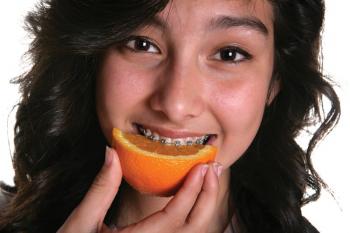With summer fast approaching, it is a nice break from school, but not a break from your good oral habits.
Healthy Habits
Want to avoid cavities? Brushing twice a day with toothpaste, flossing once a day, and limiting sugary snacks and beverages is how you do it. It’s simple but sometimes life gets busy and you might be tempted to skip it. Don’t. A bright smile makes you feel good inside and out.
Some things to protect your smile are:
Sealants
Dental sealants are a type of special plastic coating that act as a barrier, protecting cavity-prone areas. They are usually applied to the chewing surfaces of back teeth and are sometimes used to cover deep pits and grooves in other teeth. Sealing a tooth is fast and easy. As long as the sealant remains intact, the tooth surface will be protected from decay. Sealants hold up well under the force of normal chewing but sometimes a reapplication is needed. Talk to your dentist about sealants. Remember: Just because you have sealants doesn’t mean you don’t have to brush and floss every day. Sealants are added protection against decay!
Mouthguards
If you play a sport or are active in things like skateboarding or snowboarding, it’s a good idea to wear a mouthguard. It may feel funny at first, but mouthguards are the best thing you can do to protect your teeth from getting broken or knocked out. They cushion blows that would otherwise cause injuries to the lips and face and sometimes even jaw fractures. There are different kinds of mouthguards; ask Dr. Doug which one is right for you.
Braces
If you have a bad bite or your teeth are crooked or out of alignment, you may benefit from braces. Braces can help improve your smile and make your teeth straighter. They can also improve your dental health and overall health because untreated orthodontic problems can make it hard to bite and chew and can interfere with eating. If you have a bad bite, you may also be prone to cavities or gum disease because it may be hard to clean your teeth. Braces come in many different styles, including tooth-colored plastic braces or traditional metal braces that come in a variety of colors. Removable clear retainers can sometimes be used. Give Granite Coast a call to see what the best choice is for you.
Nutrition
Did you know that what you eat and when you eat it affects not only your overall health but your dental health too? Eating healthy foods help keep your teeth and body healthy. That's why you should try to keep the amount of sweets you eat or drink to a minimum. If you have something sweet, try to eat or drink it with a meal to limit the exposure time to your teeth.
What to Eat:
According to the U.S. Department of Agriculture, which encourages healthy eating, a healthy diet should include:
Fruits and vegetables. Combined these should be half of what you eat every day.
Grains. Make sure at least half of the grains you eat are whole grains, such as oatmeal, whole wheat bread and brown rice.
Dairy. Choose low-fat or fat-free dairy foods.
Lean proteins. Make lean protein choices, such as lean beef, skinless poultry and fish. Try and vary your protein choices to include eggs, beans, peas and legumes, too. Eat at least 8 oz. of seafood a week.
Snacking tips:
Snacking is hard to resist but you can do your mouth a favor by watching the amount of soda, juice or other sweetened beverages you drink.
If you want a snack, try and choose something like fruit, low-fat cheese, yogurt or raw vegetables.
If you chew gum, make sure it’s sugarless. Certain sugarless gums have earned the ADA Seal of Acceptance for helping prevent cavities by strengthening teeth. Look for the ADA Seal on the package.
If you have braces: Good oral hygiene habits such as brushing and flossing are especially important for people wearing braces. Dr. Doug recommends avoiding certain foods that could interfere with braces or accidentally bend the wires. These foods may include nuts, popcorn, hard candy, ice and sticky foods like chewing gum, caramel or other chewy candy. If you have trouble with certain foods, try cutting them into smaller pieces first. For instance, slicing apples or carrots before eating them.
You may also experience problems eating after your braces are tightened–teeth may feel sore. The first few days are the worst, so try eating softer foods such as scrambled eggs, oatmeal, pasta, smoothies, and soups until your mouth feels better.





























